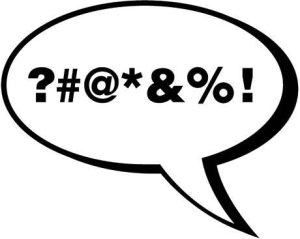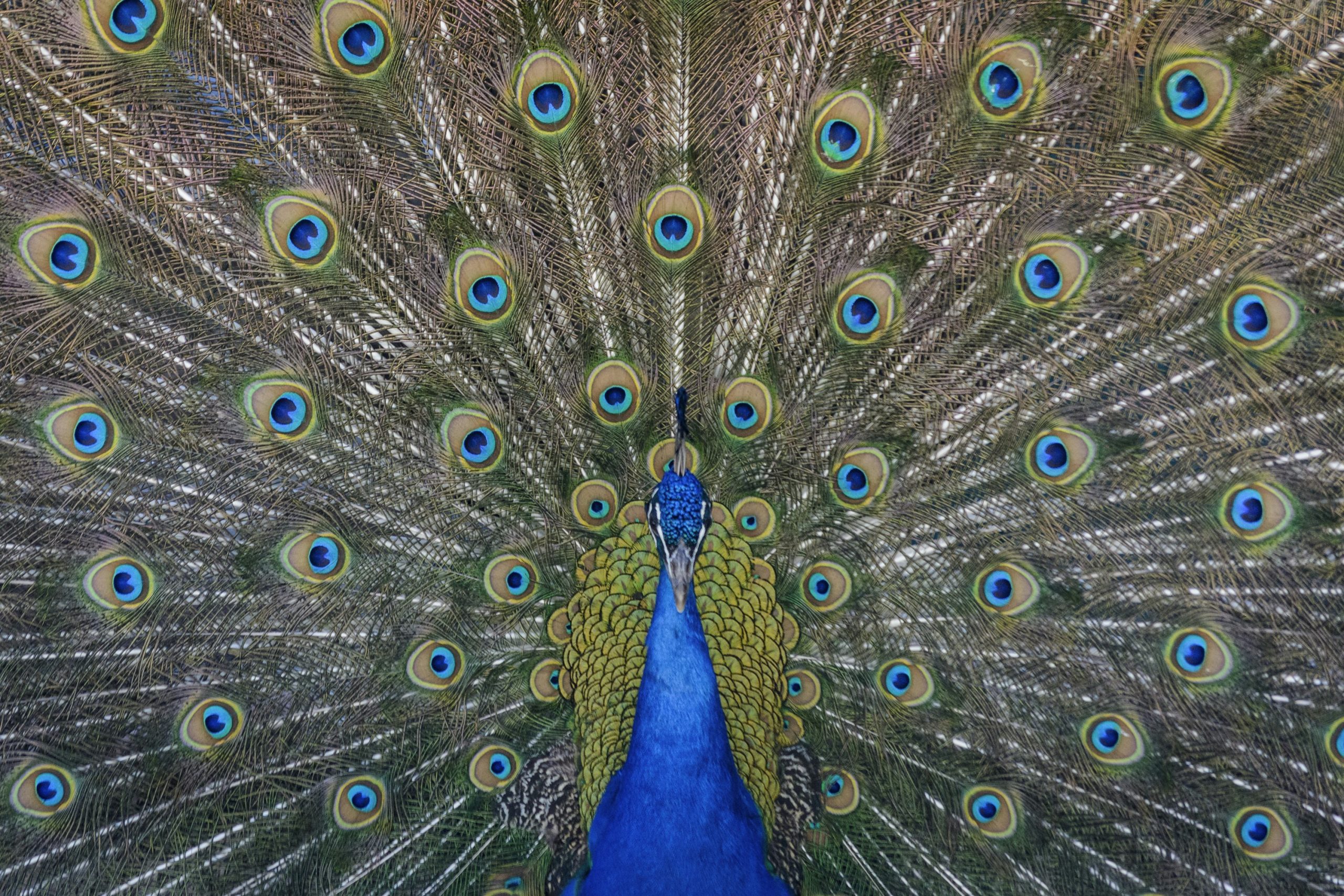When I was around 14, the leader/teacher of our church youth group was the preacher’s wife. I didn’t think of her as the wife of anyone, though I did call her Mrs. Martin. All of us did.
Although I didn’t have the comparison back then, she was the Margaret Thatcher of our group. She ruled with an iron fist in a velvet glove, and when she spoke we listened.
Partly we listened because she treated us like we might be able to make decisions. Her opinion was clear, but we were free to disagree. Intellectually that was a battle we would lose. We didn’t have the tools she had at her beck and call. So, like baby ducks, we followed along.
 One thing she was very big on for all of us was our language. Mostly she didn’t want to hear us using “cuss words,” and we didn’t want her to hear that, either.
One thing she was very big on for all of us was our language. Mostly she didn’t want to hear us using “cuss words,” and we didn’t want her to hear that, either.
But she didn’t just say, “Don’t cuss.” She said, “Sometimes people use those words to show off. They’re really doing the opposite, making themselves look bad. Sometimes they use those words to express an emotion. They should find better words.”
She challenged us to improve our vocabularies so we could use the right word at the right time, and I bought into it.
All of that made me much more aware of my own speech, and I attacked it from both sides: I tried to eliminate both “non-words” (like uh) and “bad words” while also using correct words.
As I write this, the bookshelf behind me contains several dictionaries and thesauri, along with other books on words and word usage. Thank you, Mrs. Martin, for setting me on that path.
The bad word
At this point you might be wondering if I’m going to reveal the word I try to never use. Or perhaps you’ve figured it out from the image at the top of the page.
The word, used millions of times in the media last month and by many people in everyday conversation, is pride.
Before you allow a visceral reaction to convince you incorrectly of my reason, I stopped using the word before the LGBT community began using it.
My own feeling about the word pride as the LGBT identifier is that it was an understandable but unfortunate choice. Understandable because pride is a great word for self promotion, and unfortunate because it is known by some as “the father of all sins.”
The Bible famously (lots of people who have never looked into a Bible know this) says, “Pride goes before destruction, and haughtiness before a fall.” (Proverbs 16:18) The very next verse says, “Better to live humbly with the poor than to share plunder with the proud.”
Here is how Eugene Peterson translated those two verses in The Message:
First pride, then the crash—
the bigger the ego, the harder the fall.
It’s better to live humbly among the poor
than to live it up among the rich and famous.
It was the Biblical mandate against pride that caused me to not only stop using the word, but most of all caused me to stop being prideful.
That did not happen quickly or easily, and vigilance is still required.
The Bible never says it’s OK to be prideful. Our culture would generally disagree. Pride is often promoted and lauded, and not just by the LGBT community or the Proud Boys. But my money is on the Bible. It transcends all cultures, including ours.
What are you proud of? Don’t be.
All of us can examine our lives and find accomplishments and successes. Those should be celebrated and enjoyed, and sometimes people will say, “I’m proud of what I did.”
If what they actually mean is “I’m grateful or thankful or pleased or delighted with this achievement” I’m with them. If they are puffing themselves up and elevating themselves, I am not with them.
None of us accomplish much of anything without the help and input of many others. Even professional golfers, who play a very individual game, have a team of people. No one climbs a mountain alone.
 The moment we begin to think it is all about us is the moment we begin the inevitable fall.
The moment we begin to think it is all about us is the moment we begin the inevitable fall.
Collectively we say things like “I’m proud to be an American.” Personally I love America very much and am thankful I was born here. Over the years I’ve been in many other countries and appreciated them all, though I don’t want to live there. But I didn’t emigrate to America or do any work to be American, so what do I have to be proud of?
That phrase works when the pride is in the country, and even then I think it is best to say something like “I love this country because I believe it is the best in the world.”
The mistake we make with pride, as you know by now, is turning the focus on ourselves and then believing our own press. And pride has a very strong batting average when it comes to taking root and growing in us.
Mother Angelica, a nun who started a TV network (!), said, “Pride in our hearts makes us resentful and keeps our memory in a constant whirlwind of passion and self-pity.”
That doesn’t seem to me like a very happy life.
The antidote.
Pride was probably the sin that got Satan kicked out of heaven. It is the kind of self-belief that he taught Adam and Eve, and they listened and learned.
They still had the same option they’d always had — listen to God and do what he says. But when Satan told them, “You will be like gods, knowing good from evil,” pride did its work.
The antidote to pride is known as humility. I’ll write about that next week.
Pride is both a word — but mostly a mindset — that you should avoid with every fiber of your being.
And when you accomplish that, don’t be proud of it.

10 Responses
I am so proud. (happy and fortunate) to call you a friend and be on the receiving side of your sharing your gifts and talents with me. How fortunate we all are. Where the heck were you when I was in my 20s? For many years it was the uphill Pride Slide, (not good to try to slide uphill), so I am now working on the Humble Tumble (good to fall and fail… and learn). Proud (thankful to my high school wordmeister teacher) of myself for coming up with that clever saying! Better stop now lest I get too proud of myself. Keep doing good Lewis. We appreciate you. Frank.
Thanks very much, Frank, both for reading and writing and encouraging.
Pride Slide and Humble Tumble? Clever and fun! And fits with pride going before a fall. Thankfully your tumble ended in a good way, because some of those definitely do not!
BTW, if you happen to see one of your phrases in a future DGU post (like next week), please do not be proud of it. But definitely smile big.
I’m pleased-as-punch with your post. You should be, too. Ditto Frank’s accolades.
Thanks Gary!! So glad you liked it because I know you care about words and what they mean.
Much appreciated!!
I never cease to be amazed at your facility with words. Have you ever considered songwriting?
Songwriting sounds interesting! How does one go about getting into that? 🙂
(For anyone reading this who doesn’t know, Gary and I have written many songs together. Some of them, we have been told by people who know, are good.)
EXACTLY! How can I be proud of my ancestry or anything else I have because I was born that way or born there or was blessed with it by God?
I knew you would get that, Chuck, so thanks for commenting on it.
Today’s culture, at least, takes little thought of the source of gifts and abilities. Perhaps it’s because that would be a sharing of the spotlight when pride only wants a selfie, never an usie.
You’ve touched on a biggie Lewis, for which I am most thankful! Andrew Murray’s book, Humility, was life changing for me, and is second only to the Holy Bible, in shaping my relationship with our Father in Heaven.
You write so well to an audience that desperately needs direction. Please keep it up!
Thank you very much, Bob, for your kind words and encouragement.
Much of life, I’ve discovered, is about the getting the basics right. Learning to be humble is one of those, and Andrew Murray learned it well (but not without pain), wrote about it with candor, and influenced countless numbers of people over the years. Thank you for reminding me of his great work on the topic!
Can you imagine how the world would change with more true humility and less hubris?